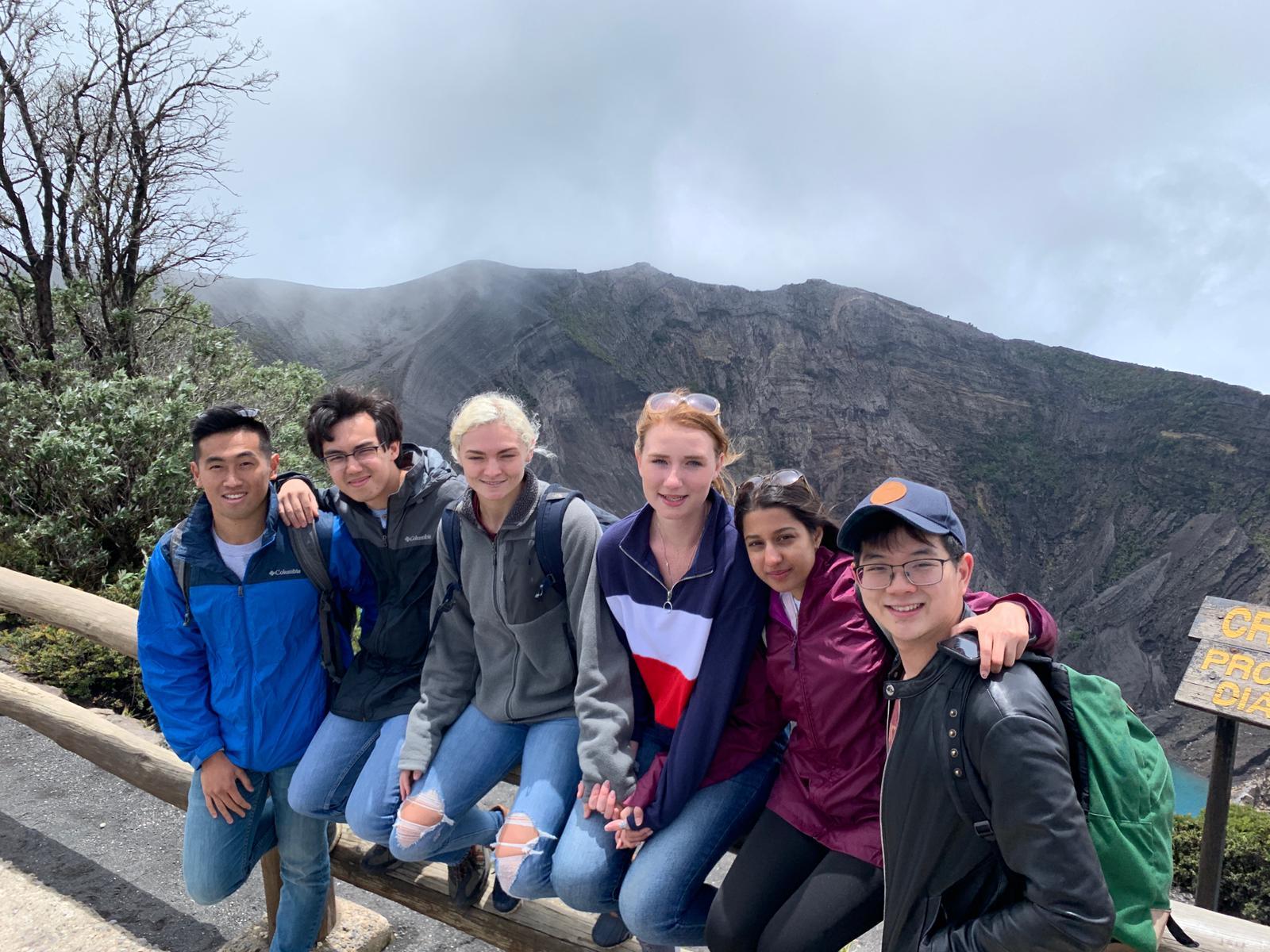So it’s been a full six weeks since I’ve been in Costa Rica and we have been all over the place trying to do as much as we can. We’ve been to scenic places like the Irazu and Monteverde while also doing clinical observations and working 4 days a week, 8 hours a day and it has been a lot of fun! During this time period, I have been able to make two great improvements. The first being is that I can finally buy food and groceries on my own in Spanish. It’s been a lot of fun having all the people I meet share with me a little Spanish so I can improve bit by bit. From the daily lessons with my driver on the way to work to the cafeteria lady at ICU teaching me food names, everyone has been eager to help me learn the language.Outside of learning Spanish here, I’m working hard at my internship and clinical rotations to practice the Spanish people give me to try to communicate with others. My other major improvement is that not only can I buy food on my own but I can make food on my own, thanks to the teachings of my roommate chef Erik Wu(link to Erik’s page).I have learned how to make not only the basic foods like rice and peanut butter noodles, but I was able to also make my very own pork bun just last week.
I have been with ICU medical as my internship here and it has been wonderful. The best is without a doubt the free breakfast and lunch they provide me here. When I’m not eating, I’m working on my project of addressing an injection molding issue with a part. The gist of the project is that a part isn’t having consistent results when being immediately tested after production so they have to perform a secondary process on the part to gain better consistency. It's my responsibility to figure out what is causing inconsistencies in the test results so that they can have consistency without the secondary process. It's been a lot of designing an experiment to properly measure multiple variables in response to a single output. However this week though I should be able to collect my data so I can move on to the statistical analysis side of my project.
When I’m not at my desk at work you can find me in operating room 2 of Hospital Nacional de Niños with the chief of surgery or one of his team members. Here I have been observing and taking notes on different operations each week. These have been from things like 45 minute examinations that have to be done under anesthesia to 5 hour long cyst removal operations like this last week. Most are typically about two hour long surgery but the five hour long one has definitely been one of my favorites so far. It consisted of pulling different bodily organs outside of the incision to see things better and lots of me observing and wondering what each fleshy red chunk was. It ended up going fine without any issues thanks to the fact that three people in the room were surgeons compared to the usual one or two. The other great part about observations is making friends with all the people in the OR, looking at you Ronald. It's a little difficult since we are unable to speak Spainish well, but my group has made friends with the technician, Luis, and even a doctor that had worked in Fanin at the TMC for three years.
The best part though is the time to relax and enjoy the beautiful country of Costa Rica. Since the internships have started we have visited Irazu and Monteverde which have been just as gorgeous as everywhere else. However the best experience may have been just watching the Gold Cup game between Costa Rica and Mexico in a local bar. It was a cool experience to see the streets silent as people were just standing outside windows and doorways watching the on going game in anticipation. Even better was when the goals were scored, and from the silence was an eruption of cheers and chants or foregin swear words depending on who scored the goal. The overtime penalty kicks were a tense 20 minutes of consistent switches between silence and ear deafening screams. The part that made it great though was that you didn’t need to know the language in those moments to understand what people were saying and experiencing.

